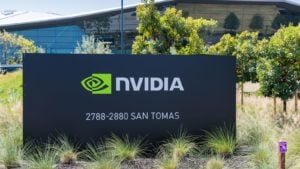A global shortage of semiconductors is causing havoc around the world, particularly for automotive manufacturers and their shareholders.
Volkswagen (ETR:VOW3), Toyota (NYSE:TM) and many other automakers have been forced to suspend production in the U.S., Europe and Asia due to a shortage of microchips that power everything from vehicle navigation systems to safety features such as blind-spot monitoring.
The shortage of semiconductors is related to expansion in multiple sectors. Automakers are ramping up production to respond to vehicle inventory shortages. The rise of work-from-home culture has pressured consumer electronics companies, which rush to meet record demand for smartphones, computers, game consoles, web cameras and other devices.
U.S. President Joe Biden recently signed an executive order aimed at strengthening domestic supply chains and reversing the current chip shortage. In this article, we look at four stocks feeling the pain from the dearth of semiconductors.
Hampered by Semiconductors: General Motors (GM)

The world’s largest automaker has announced that it is extending shutdowns at three assembly plants through mid-March due to a global shortage of semiconductors.
The impacted plants are in the U.S. (Kansas), as well as Ontario, Canada and San Luis Potosí, Mexico. The three plants produce the Chevrolet Malibu, Buick Encore, Cadillac XT4, GMC Terrain, Chevy Equinox and Trax vehicles.
The shutdowns, which were initially supposed to last only one week, will be re-assessed in mid-March, according to GM. The shutdowns are intended to ensure that the company has enough semiconductor chips available to produce its most profitable lines of pick-up trucks and sport utility vehicles.
The production cuts slowed the momentum of GM stock, which has slumped around 8% since the start of February.
Nvidia (NVDA)

The semiconductor shortage has overshadowed a lot of other positive news at Nvidia. As a leading designer and manufacturer of graphics processing units for the gaming industry as well as mobile computing and automakers, Nvidia is at the centre of the global chip shortage and its stock has been hit hard as a result.
The semiconductor shortage has been so bad that investors barely noticed that Nvidia handily beat analyst expectations for both earnings and revenue in the fourth quarter.
Nvidia’s most recent earnings came in at $3.10 per share versus $2.81 per share that was expected by analysts. Revenue totalled $5 billion compared to $4.82 billion that was anticipated.
Nvidia reported that its sales rose 61% year-over-year in the fourth quarter ended on Dec. 31. The company Nvidia also suggested that its growth will continue, forecasting $5.3 billion in revenue for the current first quarter, ahead of expectations of $4.51 billion in revenue.
Yet, despite the positive results and strong forward guidance, Nvidia shares have fallen about 16% since mid-February. Part of the decline can be attributed to Nvidia’s pending $40 billion acquisition of ARM. But the shortage in semiconductors certainly hasn’t helped the company any.
Hampered by Semiconductors: Ford (F)

Like GM, Ford Motor Co. has had to suspend production due to the current semiconductor shortage.
Ford’s plant in Louisville, Kentucky was forced to temporarily halt production due to shortages of critical microprocessors and other computer chips, and was even forced to cut production of its highly profitable F-150 pick-up trucks.
The blue oval has said that the chip shortage could lower its earnings by $1 billion to $2.5 billion this year. None of this has helped F stock, which appeared to be finally breaking out this year after trading sideways for the better part of five years.
Ford’s share price has dipped 5% to $12.17 a share in recent weeks and any momentum the stock had seems to have been zapped by the global semiconductor shortage.
Tesla (TSLA)

Electric vehicle maker Tesla has been hit as hard as any company by the shortage in semiconductors. This is because Tesla vehicles are among the most high-tech today.
Each Tesla model is loaded with semiconductors and microchips. Unfortunately, the semiconductor shortage has forced Tesla to halt production of its Model 3 sedan at its main car assembly plant in California.
Workers in Fremont, California were told that production of the Model 3 would be down from Feb. 22 until March 7. If the production stoppage continues any longer, it could jeopardize Tesla’s stated goal to to increase its global vehicle deliveries by more than 50% this year.
Hitting maximum deliveries is crucial for Tesla in order for Chief Executive Officer Elon Musk to meet his ultimate goal of selling 20 million cars a year by 2030. Tesla has already cut the price of its various electric vehicle models 14 times this year in markets such as China, Japan and France in an effort to spur demand.
Concerns that Tesla might miss its targets due to the semiconductor shortage has weighed down TSLA stock. The company’s share price has slipped 27% since hitting a 52-week high of $900.40 in January. The stock is now at $653.20 a share.
On the date of publication, Joel Baglole held long positions in NVDA and TSLA.